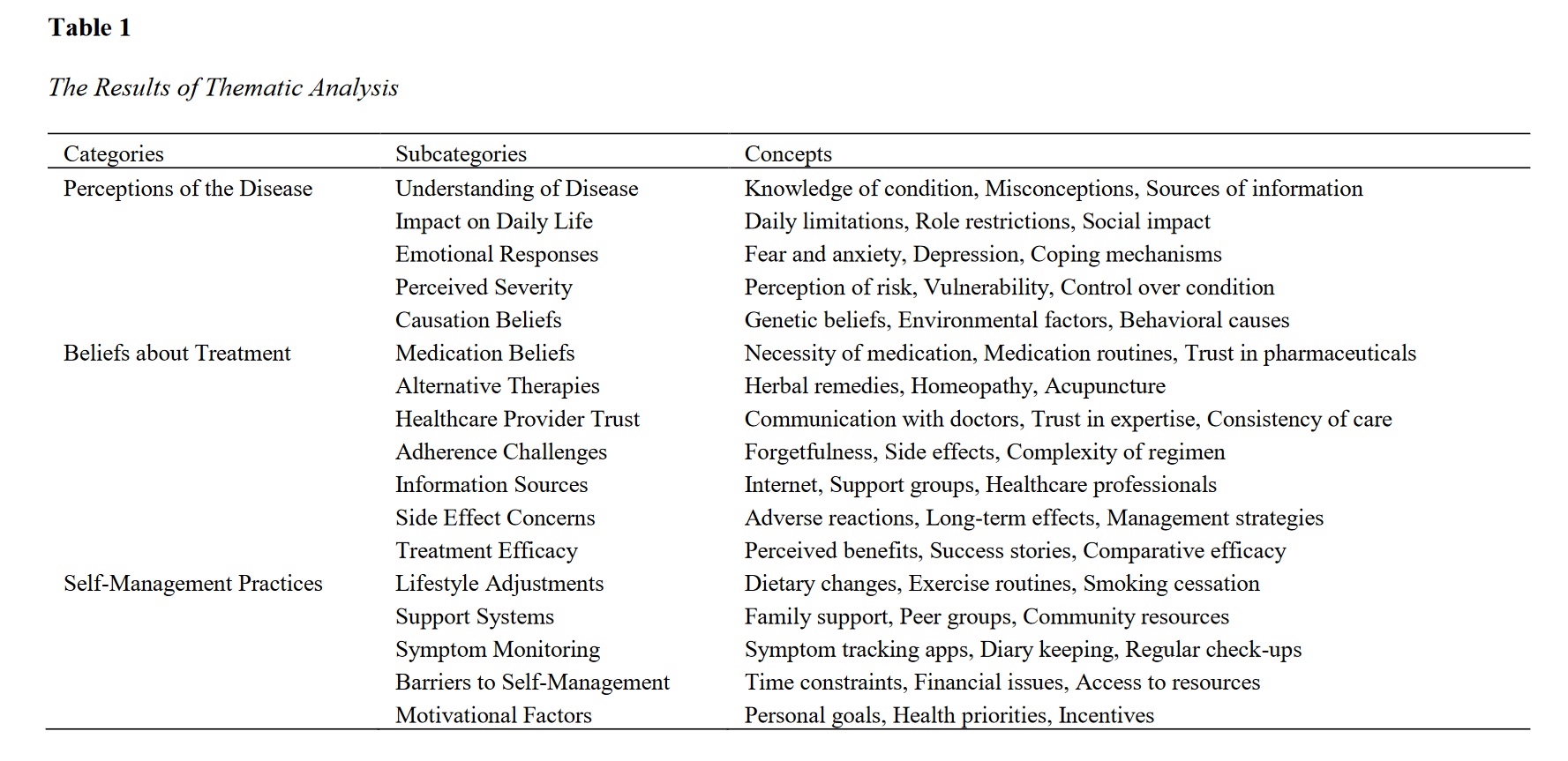The Role of Health Beliefs in Managing Chronic Respiratory Diseases
Keywords:
chronic respiratory diseases, health beliefs, disease management, self-management, patient education, qualitative research, COPD, asthma, healthcare providers, cultural competenceAbstract
The objective of this study was to explore the role of health beliefs in managing chronic respiratory diseases (CRDs) through qualitative analysis of patients' perceptions, treatment beliefs, and self-management practices. This qualitative research utilized semi-structured interviews with 20 participants diagnosed with CRDs. Participants were selected using purposive sampling, and data were collected until theoretical saturation was reached. Interviews were transcribed verbatim and analyzed using NVivo software, following a thematic approach to identify key themes and subthemes related to health beliefs and disease management. The analysis revealed three main themes: perceptions of the disease, beliefs about treatment, and self-management practices. Key findings included that 70% of participants had misconceptions about their disease, 65% experienced significant emotional responses such as anxiety and depression, and 80% reported varying levels of trust in healthcare providers. Medication beliefs significantly influenced adherence, with 75% expressing concerns about side effects and dependency. Support systems played a crucial role, with 85% of participants relying on family and community resources for managing their condition. Health beliefs play a critical role in the management of CRDs, influencing patients' perceptions, treatment adherence, and self-management practices. Misconceptions, emotional responses, and trust in healthcare providers were significant factors affecting disease management. Enhancing patient education, addressing emotional well-being, and leveraging support systems are essential for improving health outcomes in CRD patients. Culturally tailored interventions and systemic healthcare changes are recommended to address barriers to effective self-management.
Downloads

Downloads
Published
Issue
Section
License
Copyright (c) 2024 Yaliu Yang (Corresponding Author); Maura McDonnell, Seyed Hadi Seyed Alitabar, Ayşe Şahin (Author)

This work is licensed under a Creative Commons Attribution-NonCommercial 4.0 International License.






